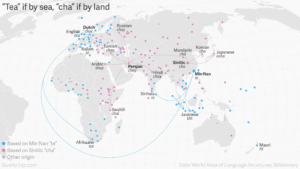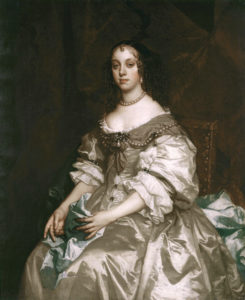
Last month marked the 650th anniversary of the Treaty of Tagilde, which led to the formation of the Anglo-Portuguese Alliance – the oldest alliance in the world still in force. Only a small stone memorial in Tagilde (Vizela), reminds us that more than six centuries ago the northern village in the Braga district was the site of a historic pact, signed at its church of São Salvador on July 10, 1372.

Its importance was underscored when the Portuguese prime minister António Costa recently met Boris Johnson to sign an agreement on foreign policy, education, security, and trade.

They inspected the original version of the treaty – which had been moved to Downing Street for the occasion by the National Archives – and commemorated the alliance that has not only survived world wars, the rise and fall of empires, and decolonization but also promoted pleasures such as port and tea.
It all started with an English claim for the throne of Castile, Portugal’s old foe.
That is not absurd as it sounds as England had large possessions in the southwest of France that bordered Castile.

The treaty was signed by King Ferdinand I of Portugal and John of Gaunt, Duke of Lancaster and third son of the English King Edward III. The document is written in the original Castilian language to reflect John’s claim to the Castilian throne.
The Anglo-Portuguese Alliance agreed that both England and Portugal would wage war against Castile on two fronts; the English on the north and the Portuguese on the west. In 1385, the Portuguese army, with help from English archers, defeated Castilian forces in the Battle of Aljubarrota.

More than three centuries later, Catherine of Braganza, daughter of King John IV of Portugal married King Charles II of England in 1662 to become queen.
She helped to popularise tea in England and supported the Methuen treaty in 1703, which bolstered the port trade. She is also said to have made popular orange marmalade and the use of the fork.
To end with, the alliance played an important role in World War II when Britain was given facilities in the Azores to help in the Battle of the Atlantic against German submarines. But it also survived difficult times such as the 1890 British Ultimatum, which forced the retreat of Portuguese forces from areas in Africa that had been claimed by Portugal but occupied by Britain.
Enjoy the week Boa semana (pic Público/Times)

 There are roughly two ways to say tea in the world. One is like the English expression – thee in Dutch, tee in German or thé in French. The other is a variation of cha – chay in Russian, chai in Swahili or shay in Arabic. Both variations come from China. The words that sound like cha spread across the land, the tea saying spread over water.
There are roughly two ways to say tea in the world. One is like the English expression – thee in Dutch, tee in German or thé in French. The other is a variation of cha – chay in Russian, chai in Swahili or shay in Arabic. Both variations come from China. The words that sound like cha spread across the land, the tea saying spread over water. But the Chinese character for cha is pronounced as te in the Min Nan variety of Chinese, spoken in the coastal province of Fujian.
But the Chinese character for cha is pronounced as te in the Min Nan variety of Chinese, spoken in the coastal province of Fujian. Although it’s fairly commonly known that tea originated in China, it is far less known that it was a particular Portuguese woman, who inspired its popularity in England. Let’s go back to 1662, when
Although it’s fairly commonly known that tea originated in China, it is far less known that it was a particular Portuguese woman, who inspired its popularity in England. Let’s go back to 1662, when